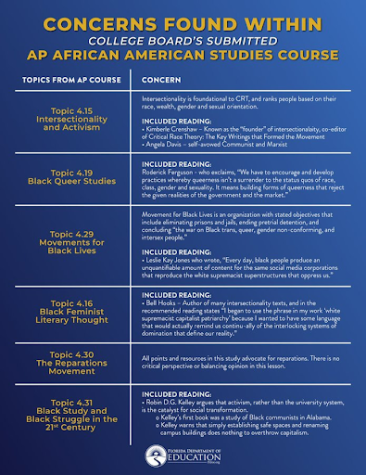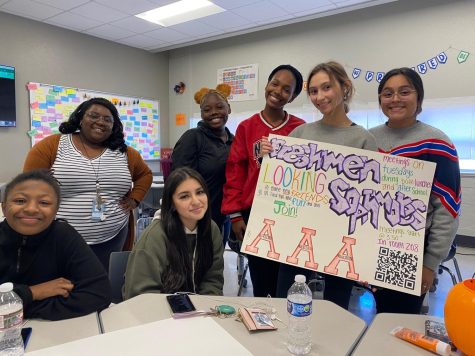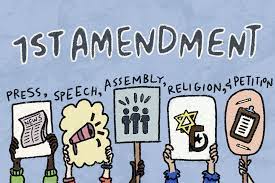Curriculum on the Chopping Block
February 6, 2023
School Districts across the country are experiencing input from local governments and parent groups as to the curriculum offered in their schools, perhaps like never before. Dr. Angelica Ramsey, superintendent, announced in a news email to district stakeholders last week that the “School Health Advisory Council Committee will begin reviewing different options for the Human Sexuality Curriculum once the Board of Trustees convenes them to begin the process.”
“The delay will suspend the instructional delivery of the sexual education unit for the 2022-2023 school year,” Ramsey said. This was a result of parental and community push back to curriculum that was up for adoption at the January 24, 2023 school board meeting. Other curricula are being questioned across the country including African American Studies as is evidenced in Florida.
Florida’s Governor Ron DeSantis’ administration has blocked College Board’s Advanced Placement (AP)

(Twitter-@SenMannyDiazJr)
African American Studies from being taught at high schools across the state. The ban was addressed in a letter to College Board from the Florida Department of Education (FLDOE) claiming that the curriculum is “(…)inexplicably contrary to Florida law and significantly lacks educational value.” The FLDOE maintains that it will revisit its decision to block the course if College Board alters the areas of concern.
The AP African American Studies course is part of a pilot program at more than 60 schools across the country this year. The information page for the pilot describes the content as an interdisciplinary mix of “literature, the arts and humanities, political science, geography, and science”, designed to explore the vital contributions and experiences of African Americans.
The AP website corroborates that the program has been developed “for more than a decade” and “(…) has already engaged faculty from hundreds of colleges and universities to ensure the course reflects the academic rigor of introductory college courses within the discipline.”
Potential 2024 GOP presidential candidate, Governor DeSantis has stood by the state department of education saying the course probes into political agendas and promotes radical ideas. In a press conference on the 23rd, DeSantis claimed he suspected teachings of critical race theory but “it’s way more than that”.
DeSantis told reporters, “Now, who would say that an important part of Black history is queer theory? That is somebody pushing an agenda on our kids. And so when you look to see they have stuff about intersectionality, abolishing prisons, that’s a political agenda.”
His postulations surrounding the course’s content are congruent with Florida’s crackdown on educational rhetoric which portrays racism as an integral part of American society, a position the FLDOE safeguards as an opposition to woke indoctrination.
Florida has taken controversial strides to ensure the eradication of discourse surrounding race relations in schools. Following the FLDOE’s decision to ban critical race theory in 2021, 51 K-12 math textbooks and the New York Times’ Pulitzer prize-winning “1619 project” were outlawed from being included in curriculums.
Last year, DeSantis signed off on Florida’s Stop W.O.K.E. Act prohibiting businesses and schools from conducting instruction on certain concepts surrounding race. This act outlined Florida’s revised “requirements for required instruction on the history of African Americans.” Instructional materials are held to several “academic state standards” aimed to protect students and employees from assuming guilt or responsibility for America’s past.
The rejection of the AP course has spurred debate over the validity of DeSantis’ idea of “indoctrination”. Florida has faced mounting criticism over the past week from students, administrators, democratic leaders, and organizations. The NAACP and White House Press Secretary, Karine Jean-Pierre, condemned Florida, insinuating they believed this to be a form of targeted censorship.

Paschal senior and African American Association’s president , Adh-Dhuha Ahmed shared similar insight to the Pantherette after hearing about the FLDOE’s evaluation of the course.
“Personally, I have found that being educated in African American studies has encouraged me to take advantage of the opportunities that I would not have been offered in old America. It is fundamental to keep these teachings evident within school curriculums for the sake of representation and remembrance.”
“Feeling intact with your identity is a huge part of success and one of the reasons that I have been able to overcome many of the obstacles that I have faced within not only my academics but life in general,” she said.
Ahmed continued, “Instead of changing the curriculum based on what’s too “woke”, how about we teach students about the whole story and allow their morals to guide them to the decision that they believe is right. It’s important to allow young minds to conceptualize for themselves; We’ll be “pushing an agenda” if we decide to teach only one side of the story.”

















